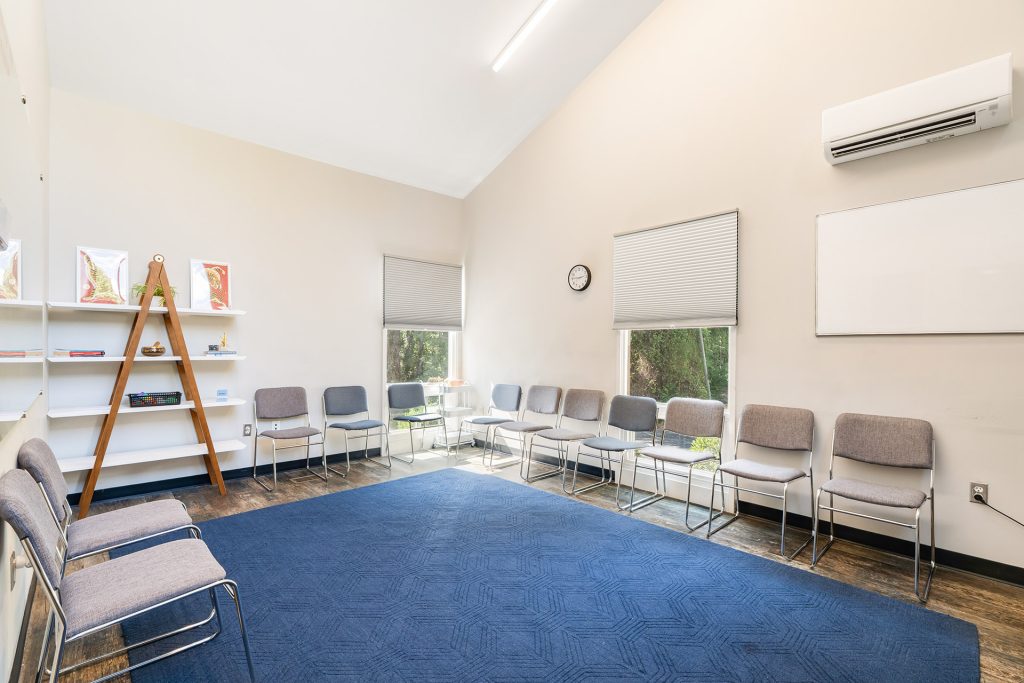Depression Treatment
When You’re Ready, We’re Here to Help
New Patient Form
Depression
Depression is one of the most common mental health conditions, yet it can feel deeply personal, isolating, and overwhelming.
It may be linked to genetics, stressful life events like job loss or relationship problems, or major life transitions. Symptoms often include ongoing sadness, losing interest in activities you once enjoyed, changes in appetite or sleep, and feelings of hopelessness.
Depression can affect anyone at any point in life and often disrupts relationships, work, school, and daily routines. It can make you feel like nothing will ever improve, which makes it even harder to do the simple things such as exercising, keeping a regular sleep schedule, or spending time with others that can actually help ease symptoms.


What Are the Symptoms of Depression?
Depression is more than just feeling sad. Sadness is a natural part of life and it comes and goes. Depression is different because it persists regardless of how life is going.
It involves changes in mood and functioning that can significantly lower your quality of life.
Common Depression Symptoms Include:
- Persistent feelings of sadness, emptiness, or hopelessness lasting more than two weeks
- Loss of interest or pleasure in activities you once enjoyed
- Changes in sleep patterns, such as sleeping too much or too little
- Noticeable weight gain or loss
- Ongoing fatigue or low energy
- Feelings of guilt, shame, or worthlessness
- Trouble concentrating, making decisions, or remembering things
- Thoughts of self-harm or suicide
- Not everyone experiences depression in the same way, and your symptoms may differ from those of others
Depression looks different for each person but often shows up in the form of persistent sadness, loss of motivation, changes in daily routines, and a sense of hopelessness. These symptoms can interfere with relationships, academic or work performance, and overall quality of life.
How We Treat Depression
Effective treatment means looking beyond just the symptoms and trying to understand the underlying causes.
Our approach combines proven therapies, depression medications, and holistic practices to support both mental health and overall flourishing. We also recognize that factors like sleep, nutrition, exercise, hobbies, and relationships play a major role in recovery. While healthy habits alone may not be enough, they are an important part of a balanced and sustainable plan.
Our Depression Treatment Includes:
- Acceptance and Commitment Therapy (ACT)
- Cognitive Behavioral Therapy (CBT)
- Eye Movement Desensitization and Reprocessing (EMDR) for trauma-related depression
- Nutritional Coaching
- Individual therapy tailored to your unique needs
- Psychiatric care and medication management
- Transcranial Magnetic Stimulation (TMS) for treatment-resistant depression
- Holistic practices such as mindfulness and stress reduction techniques
Depression Can Feel Isolating, But You Don’t Have to Face It Alone
Depression can make you feel cut off from the world, like you are the only one who is struggling. That sense of isolation can make reaching out for help feel even harder. We understand how depression can trap you, and we are dedicated to helping you find your way out.
We provide personalized, comprehensive care to meet your needs. Our team works together to give you the tools, resources, and support to manage depression and improve your quality of life.
If you are ready to take the next step, reach out today. We are here to help you find the right treatment and start moving toward balance, stability, and a healthier future.
